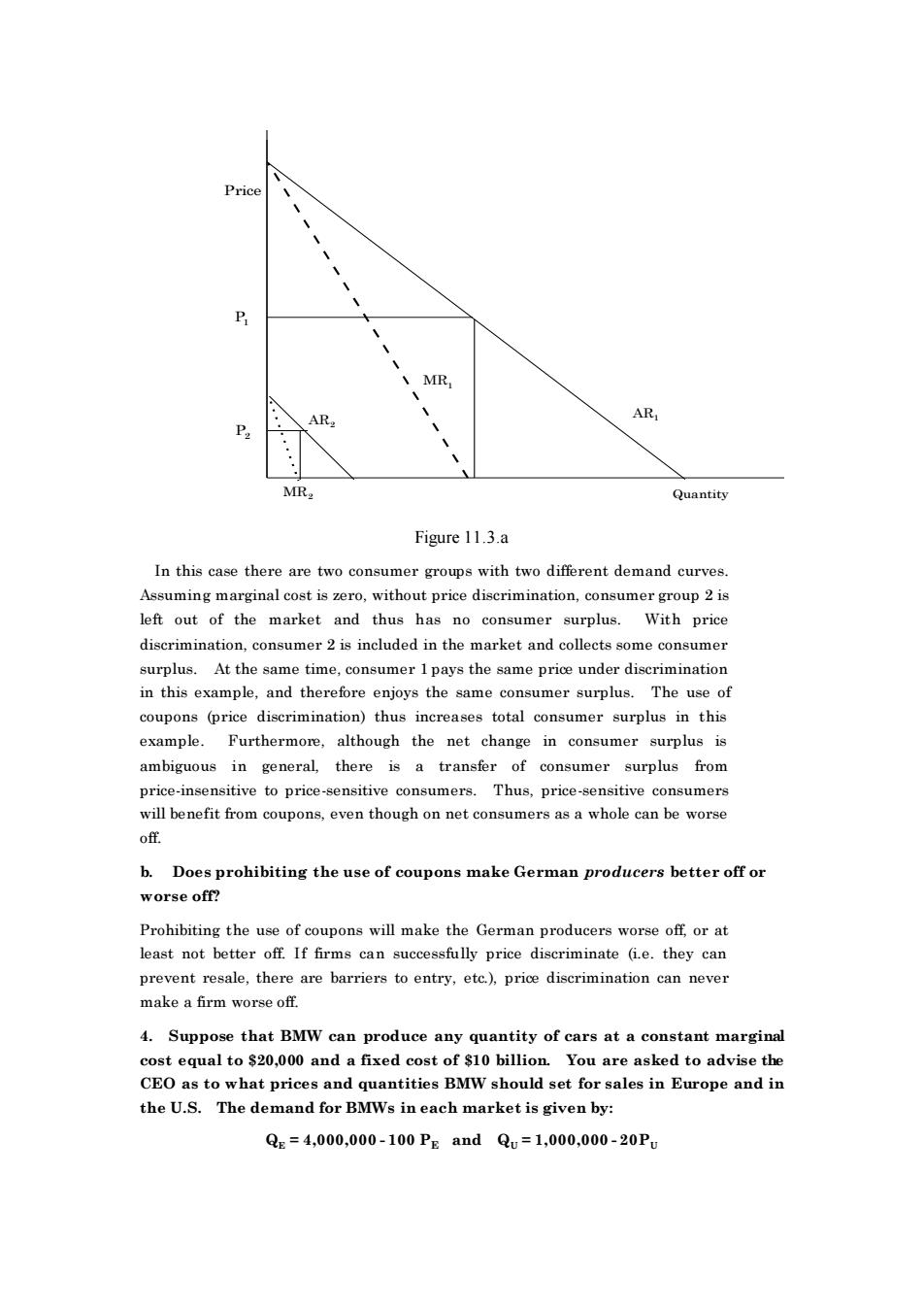正在加载图片...

Pric P .MR AR AR, MR Quantity Figure11.3.a left out of the market and thus has no consumer surplus.With price discrimination,consumer 2 is included in the market and collects some consumer surplus.At the same time,consumer 1 pavs the same price under discrimination in this example,and therefore enjoys the same consu ner surplus.The use of coupons ediscrimination)thu example.Furthermore,although the net change in consumer surplus is ambiguous in general,there is a transfer of consumer surplus from price-insensitive to price-sensitive consumers.Thus,price-sensitive consumers will benefit from coupons,even though on net consumers as a whole can be worse b.Does prohibiting the use of coupons make German producers better off or worse off? Prohibiting the use of coupons will make the German producers worse off,or at least not better off.If firms can successfully price discriminate (i.e.they can prevent resale,there are barriers to entry,etc.).price discrimination can never make a firm worse off. 4.Suppose that BMW can antity of cars at a c onstant marginal equal to$20,000 and a fixed st of 10 billion u ar sked to advise the CEO as to wha at prices and quantities BMW shor ld set for sales in Europe and in the U.S.The demand for BMWs in each market is given by: Qe=4,000,000-100 PE and Qu=1,000,000-20Pu AR1 MR1 AR2 P1 P2 MR2 Price Quantity Figure 11.3.a In this case there are two consumer groups with two different demand curves. Assuming marginal cost is zero, without price discrimination, consumer group 2 is left out of the market and thus has no consumer surplus. With price discrimination, consumer 2 is included in the market and collects some consumer surplus. At the same time, consumer 1 pays the same price under discrimination in this example, and therefore enjoys the same consumer surplus. The use of coupons (price discrimination) thus increases total consumer surplus in this example. Furthermore, although the net change in consumer surplus is ambiguous in general, there is a transfer of consumer surplus from price-insensitive to price-sensitive consumers. Thus, price-sensitive consumers will benefit from coupons, even though on net consumers as a whole can be worse off. b. Does prohibiting the use of coupons make German producers better off or worse off? Prohibiting the use of coupons will make the German producers worse off, or at least not better off. If firms can successfully price discriminate (i.e. they can prevent resale, there are barriers to entry, etc.), price discrimination can never make a firm worse off. 4. Suppose that BMW can produce any quantity of cars at a constant marginal cost equal to $20,000 and a fixed cost of $10 billion. You are asked to advise the CEO as to what prices and quantities BMW should set for sales in Europe and in the U.S. The demand for BMWs in each market is given by: QE = 4,000,000 - 100 PE and QU = 1,000,000 - 20PU